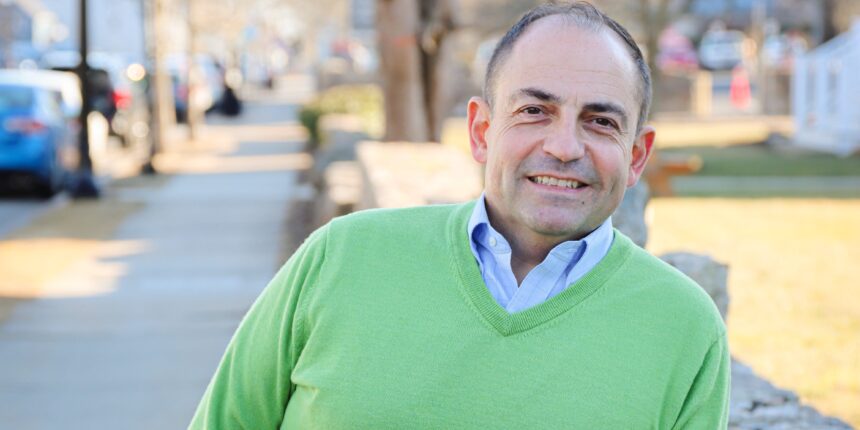Patient Profiles
Routine Screening Caught Colon Cancer Early

Joe Tavares, of New Bedford, was 49 years old when his primary care physician urged him to undergo his first colonoscopy.
By following that advice, Joe avoided the complications of advanced colon cancer.
“Don’t fool around with your health is the take-away,” he said. “Even if you’re feeling great, you don’t know. These testing windows are set up for a reason.”
The topic of colon cancer screening came up during Joe’s first visit to Dr. William Blair, a Southcoast family physician. During an annual checkup. Dr. Blair noticed his new patient would turn 50 on his next birthday and had not yet undergone his first colonoscopy. Recently, The American Cancer Society dropped its recommended age for the initial screening from 50 to 45.
Dr. Blair referred Joe to Dr. James Watson, Southcoast Medical Director of Gastroenterology, who performed the test in Fall River. In a painless procedure, Dr. Watson discovered and removed polyps that turned out to be cancerous. A follow up screening a month later confirmed that all the cancer had been removed.
Doctors say that advanced colon cancer is on the rise because patients delayed routine health care during the pandemic. Patients who delay colonoscopies risk allowing cancer to advance to the point that it requires surgery and other aggressive treatment. “The scary part is that colon cancer has no symptoms.” Joe shudders to think how far his cancer might have advanced if Dr. Blair had taken a more relaxed approach to his first screening.
A year later, Joe and his wife Lenore, look forward to enjoying more traveling – a pastime they immensely enjoy. Together, they have traveled through Southeast Asia and Africa, where Joe was born in the southeast country of Mozambique.
He urges everyone to follow their doctor’s advice and get tested. These days, early scheduling is important as volume has increased with updated guidelines and patients returning for screenings after COVID.
“The motto of story is, don’t fool around with screening,” he said. “My story could have ended much worse.”
